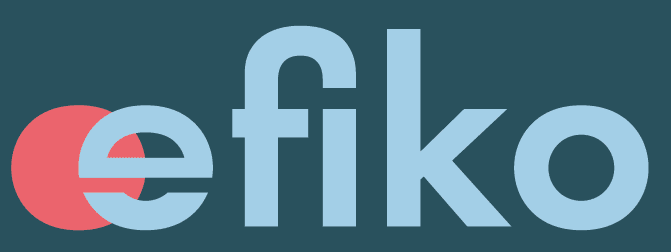Theory of Change Design
Fast-track your ability to create a well-articulated impact strategy to communicate with funders, mobilise stakeholders and inform your impact measurement and validation needs.
Beginner to intermediate

What You'll Learn
Course Modules
Get introduced to the purpose, benefits and key steps of developing a strong Theory of Change. Discover how to perform root-cause analysis and set compelling impact goals for your project.
Learn how to apply the backward mapping approach to illuminate the causal relationships between your activities, outputs, outcomes and impact goals. Turn a visual map into a compelling narrative to communicate with your stakeholders.
Develop a measurement plan based on strong impact indicators to start collecting meaningful data for reporting and decision-making whilst validating your Theory of Change along the way.
Delivery Options
-
Booking for myself
or a few colleagues - Booking for my team
Self-paced
The learning experience that fits your busy working schedule and allows you to learn at your own pace from wherever you are. Access > 6 hours of online course material and get the ins and outs to design or evaluate a Theory of Change.
Hybrid
Join 3 interactive sessions with an accredited trainer and a group of like-minded peers, on top of the self-paced course material! The hybrid package will help you confidently progress in your ability to design or evaluate a Theory of Change while giving you the opportunity to share experiences, expand your network and delve deeper into topics of interest.
March 2024
March 8, 22 | April 12, 26
From 10:00 AM CET/CEST
Let's talk!
What Our Clients Say
“The course gave me insight and knowledge that is super helpful to have and I already feel excited to share what I have learnt when planning my next Theory of Change workshop”
Our Expert Trainers
This training is developed with Mainlevel Consulting and 4th Wheel Social Impact, two boutique advisory firms with extensive experience in the design and implementation of impact strategies across the public and private sectors.
Sharon Weir co-founded 4th Wheel Social Impact in 2010. She has designed and implemented more than 100 research, evaluation and communication projects in the public and private sectors across domains from education to health, women empowerment and CSR.
Tatjana Mauthofer is a senior expert in monitoring and evaluation and social impact management at Mainlevel Consulting. She guides global development and social impact groups (e.g., GIZ, UNWomen, Fairtrade Germany) in formulating Theory of Change and creating innovative evaluation methods for outcome measurement.
Related Insights
Frequently Asked Questions
Can't find the answer to your question? Contact us on support@efiko.academy.
This course is designed for impact project leaders, funders and sustainability consultants eager to learn an internationally recognised framework for planning and designing social and environmental projects. No prior experience is required – the course offers a step-by-step approach for designing a Theory of Change from start to finish.
This course is mainly designed for social entrepreneurs, NGO leaders, Measurement & Evaluation officers and intermediaries supporting social purpose organisations. While prior practical experience is a plus, it is no pre-requisite to start the course. The complexity of the content increases with every chapter but many examples, exercises and case studies will help you build self-confidence and deep understanding of each step of the journey.
Yes, a certificate signed by 4th Wheel Social Impact, Mainlevel Consulting and Efiko Academy, is provided upon completion of the course.
In all packages, you’re invited to join the community platform where you can ask your burning questions.
In other cases, support@efiko.academy is always open for questions.
For now, the course is only available in English.
The content will soon be subtitled in various languages.
After finishing the training and successfully passing the final examination, you can earn the course Official Certificate of Completion co-delivered by Mainlevel Consulting, 4th Wheel Social Impact and Efiko Academy.
As a research and advisory firm, 4th Wheel provides valid and sophisticated insights into social welfare programmes to enable data-driven decisions. Practical and culturally relevant social impact assessment strategies are designed for organisations that involve all stakeholders, not just evaluation experts. Impact evaluation is incorporated into programme design by developing contextual Theory of Change (ToC) frameworks and building impact-focused solutions.

Mainlevel provides services in monitoring, evaluation and digitalisation to organisations in the public and private sectors. From developing digital monitoring systems and conducting evaluations to strategic guidance on digitalisation and developing IT solutions, they are committed to enabling our clients to manage complex programmes more effectively and efficiently.
Yes, we offer the option to pay with a credit card (Mastercard, VISA) or PayPal. If you would like to pay with your debit card, we advise you to create a free prepaid PayPal account here and use it to make your payment.
Every transaction on Efiko is performed and secured by Stripe, a reliable payment processor.
Yes, you can secure several tickets at once by contacting us at support@efiko.academy. Include the number of people you would like to enrol and we’ll get back to you promptly. We also offer B2B/group deals. Don’t hesitate to contact us to request a demo.
Let’s Talk!
We are here to empower you or your teams in adopting sound sustainability practices. Contact us if you wish to discuss your needs and explore suitable solutions.


